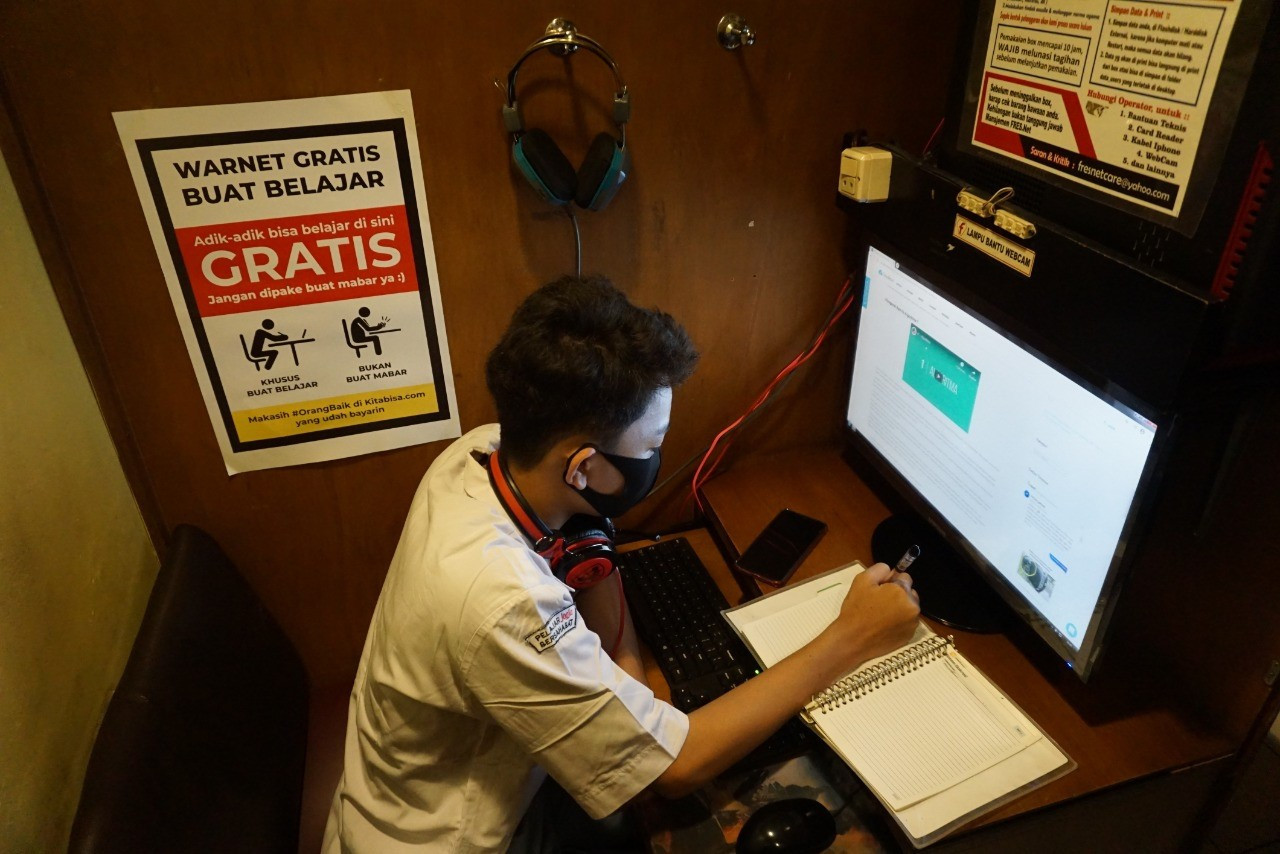Popular Reads
Top Results
Can't find what you're looking for?
View all search resultsPopular Reads
Top Results
Can't find what you're looking for?
View all search resultsGovt to start disbursing internet quota for students in September
Change text size
Gift Premium Articles
to Anyone
T
he government through the Education, Culture, Research and Technology Ministry continues to take measures to assure that students’ education is not disrupted during the COVID-19 pandemic. Among its efforts is the disbursement of internet quota for online learning.
In September, the government will start distributing internet quota assistance worth Rp 2.3 trillion (US$159.71 million) for 26.8 million students, teacher and lecturers. The assistance is expected to reach the recipients in three different stages, namely from Sept. 11 to 15, Oct. 11 to 15 and Nov. 11 to 15. The packages will last for 30 days.
The internet quota can be used to access various online platforms that are part of the teaching and learning process. A public dialogue that was held on Thursday at the KPC PEN Media Center discussed the disbursement, including the expectation and field evaluation in relation with the implantation of long-distance learning.
Commenting on the program, the acting head of the Education, Culture, Research and Technology Ministry’s Data and Information Center, M Hasan Chabibie, said the government had been emphasizing data precision and instructed local education agencies to update their recipient list, especially for the second term (September to December). According to the previous list, the recipients of internet quota assistance comprised 1.5 million kindergarten students, 20.5 million elementary through high school students, 3.2 million university students and lecturers, as well as 1.5 million teachers.
The assistance, Hasan added, must be supported by improved internet literacy, especially among teachers, to boost the quality of online teaching and learning, in addition to a steady internet connection and the adequate technology.
Hasan acknowledged that the improvement of teachers’ digital literacy had been ineffective, so educators were encouraged to access https://gurubelajardanberbagi.kemdikbud.go.id/ for additional teaching materials and ideas.
“Teachers are encouraged to visit the site and improve their way of teaching, so the use of internet quota can be optimized,” he said.
Indonesian Teacher Association (IGI) chairman Danang Hidayatullah and Bangka Belitung Governor Erzaldi Rosman, who attended the discussion, agreed that teachers should be very adaptive and willing to increase their capabilities by widening their horizon with an open mind, especially in times like these that demand change.
Erzaldi added that his administration had been offering training for teachers so they could plan innovative and creative lessons. For a smooth internet connection, which has not been equally available, the government has asked providers to boost their services. As for those who still lack the technology for online learning, such as laptops or tablets, the government is preparing a laptop assistance program for schools.
The government has also encouraged all relevant stakeholders to work together to utilize school operational assistance (BOS) funds. Central Java Education Agency acting head Yuni Astuti said the local administration had allocated half its BOS funds for smartphones that will be lent to students from low-income families.
As many as 10,000 underprivileged children have received Rp 1 million per year to purchase their own smartphones for online learning. For further inquiries regarding the internet quota program, please visit https://kuota-belajar.kemdikbud.co.id.










